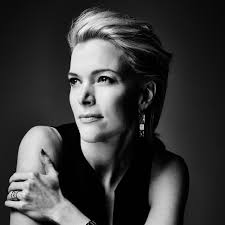What I find most interesting in this Vanity Fair portrait is how her brand of conservatism does not seem to be driven by ideological impulses so much as her own brand of common sense reasoning. It's refreshing to read about someone who believes in knowing what the hell they're talking about without fetishizing or valorizing their work as a moral triumph. I get so tired of hearing about how wonderful someone is because they've accomplished something extraordinary, as if their achievements were the product solely of their own ingenuity or rugged individualism. Doing something awesome does not make me better than someone else. While it may help me keep a job, doing awesome things and knowing how to learn are skills acquired and cultivated over the course of my life. Accomplishments and hard work, while admirable, are not what should give people their sense of self-worth. A person's accomplishments extend from who they are, and every person has inherent worth, and is deserving of regard and respect.
According to the article, early on in Megyn Kelly's tenure at Fox News, her boss, Roger Ailes, told her to "make more mistakes." That's great advice for anyone starting out in a new venture. What is the point of having knowledge, enthusiasm, vision, and dedication to a field if one is afraid of making errors? How can we learn if we don't try new stuff out? Over time, Kelly's voice in journalism began to emerge when she became less concerned about making mistakes and more interested, in the words of Steve Martin, in "being so good they can't ignore you." (She is said to like this quote very much.) To take on a mission like that necessitates hubris that can produce groundbreaking work, but also some errors along the way. My takeaway from the Vanity Fair article is that those two outcomes are not separate, or, as buddhists like to say, "they are not two." Groundbreaking work means that one must make mistakes along they way. Talk all you want about the evil Roger Ailes and Fox News have rendered onto our republic and the world by making candidates like Donald Trump appear to be viable alternatives to the very un-glamourous and important work of governance, and I will largely agree with you. And if the folks at Gawker are to be believed, Kelly is an odious presence on television, and a virulent racist. There is a case to be made, however, for the rise of Megyn Kelly, no matter what Donald Trump or Gawker may say about her. My lesson from the article is simple: living with a voice can be challenging sometimes. Any composer worth her salt knows this. But to move through challenges, humbled and informed by them, and everyday be un-ignorable by virtue of one's good works--maybe that's the hokey pokey. Maybe that's what it's all about. Comments are closed.
|
Walter says:"Wear your mask & practice social distancing. Together, we can defeat Covid 19!"
Charlotte says:
"Literacy in Music & Arts is one of your vital links to global citizenship!"
Murphy says:"Be sure to support the arts in *your* community!" Archives
November 2021
Categories
All
|




 RSS Feed
RSS Feed
